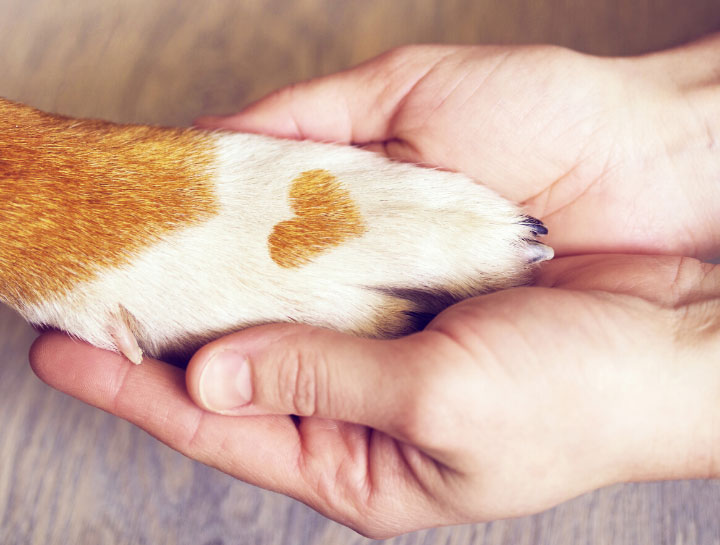End of Life Pet Care
A difficult decision.
When a pet’s quality of life deteriorates to the point where they experience more bad days than good days, you may be faced with the difficult decision regarding whether to choose euthanasia.
The same way we provide compassionate care for pets in their early days, we’re prepared to support you and provide end of life care for them during their last. As partners in your pet’s health, we’ll make sure you’re informed about all potential treatment options before you make a decision. We understand that making that kind of choice is never easy, but we promise to be there every step of the way.
Should you decide euthanasia is the right choice for your pet, we’ll prepare you for the process and answer any questions you may have about what’s going to happen. We hope you’ll find some comfort in knowing our humane methods will ensure your pet is laid to rest peacefully.
Understanding the Process
Understanding how the procedure is performed may help an owner in this decision. It may also help an owner decide whether they wish to be present during the euthanasia. Initially, a pet is made as comfortable as possible. Our veterinarians will perform the procedure in a pet's home if that is requested. If the animal is brought to the hospital, the veterinarian will assess the patient and talk to the owner in a room to explain the process. Initially, a sedative will be given to render the pet unconscious and completely relaxed. Once the pet is completely unconscious a barbiturate will be given intravenously. As the solution is injected within minutes the heart and lungs stop functioning. Since the pet is not conscious, they do not feel anything. Most times, the animal passes away so smoothly, that it is difficult to tell until the veterinarian listens for the absence of a heartbeat. The eyes remain open in most cases. Sometimes, the last few breaths are what's termed "agonal", meaning involuntary muscle contractions but again, the pet is not aware at this point.
After the animal dies, there is complete muscle relaxation, often accompanied by urination and defecation. This is completely normal and is something an owner should expect. In addition, after death, chemicals normally stored in nerve endings are released causing occasional muscle twitching in the early post-mortem period. Many owners who chose to stay with their pets are surprised at how quickly and easily the pet is put to rest.
Coping with Pet Loss
Pets are family and losing them comes with the same grief as any other loss. If you’re struggling with grief following the loss of your pet, remember to:
- Give yourself time to mourn and cry
- Do your best to stick to your regular routine
- Talk about your feelings with family, friends, or even our hospital staff
- Memorialize your pet in a way that’s special to you
You can use these resources if you need additional support:
Please reach out to us at (423) 745-7436 if there’s anything we can do for you.

